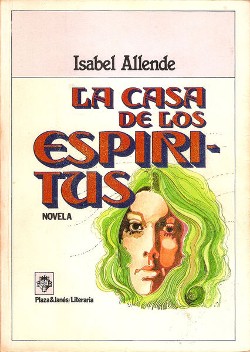Thursday, January 20, 2022
The House of the Spirits - Isabel Allende - 22/01/17
Sunday, January 16, 2022
The Remains of the Day - Kazuo Ishiguro - 22/1/14
The Remains of the Day concerns Stevens, a prim and proper butler working in the post-war British countryside of the 1950s. Over the course of the book he reflects on his life in a great house, especially with regards to an underling named Miss Kenton and his employer Lord Darlington. Despite belonging to the "downstairs" part of the upstairs/downstairs equation, Stevens is quite eloquent- although not always a 100% reliable narrator. His emotions need to be teased out by reading between the lines, and in this very particular story some universal themes of love, loyalty, dignity, and regret come to surface. I loved it and find myself once again setting a high bar for the year, in only the second week of January. I'm also excited to check out the movie starring Anthony Hopkins and Emma Thompson!
Sunday, January 9, 2022
Breakfast of Champions - Kurt Vonnegut - 22/1/8
Book 2 of the year is my fourth Vonnegut novel (joining Hemingway as one of the few authors I've read 4 books by, not-in-a-series). It's sometimes difficult when reading deeper into an author's catalogue, knowing that their most famous novels (and therefore likely the first ones read) are generally the most-famous for a reason. Having said that, most people would call Slaughterhouse Five Vonnegut's masterpiece, whereas my favorite happens to be Cat's Cradle.
Aaaaanyways, Breakfast of Champions is a difficult novel to review without giving away my favorite part, which is a literary device/gimmick introduced in the back half of the book that has no right to work as well as it does. But the whole thing is pretty good, hitting a number of Vonnegut trademarks such as the presence of his semi-autobiographical character Kilgore Trout (with all the bitesize recaps of sci-fi premises that that entails), a plethora of hilarious character names (Dwayne Hoover & Wayne Hoobler, a Pontiac salesman named LeSabre, and a doctor named Khashdrar Miasma, and so on), and a satiric writing style that alternates effortlessly between absurdly hilarious and a bleak/damning forecast about an impending manmade apocalypse.
This book was not universally beloved upon its release, and Vonnegut himself took issue with it, but at the end of the day the writing is sharp and there are extraordinary insights to be found- and not just in regards to knowing every character's penis length and diameter. I find Vonnegut to be one of the most quotable authors I've ever read, and here are just a few from this book that I don't want to forget:
"Ideas on Earth were badges of friendship or enmity. Their content did not matter. Friends agreed with friends, in order to express friendliness. Enemies disagreed with enemies, in order to express enmity."
“Of course it is exhausting, having to reason all the time in a universe which wasn't meant to be reasonable.” or perhaps the more succinct: “in nonsense is strength”
“The whole city was dangerous—because of chemicals and the uneven distribution of wealth and so on.”
"When I get depressed, I take a little pill, and I cheer up again."
P.S. Vonnegut has such great "tombstone quotes" in his books that I tried to look up what his own tombstone said- only to find that his final resting place is a secret and there are no photos online! Perhaps to dissuade weirdos like me from visiting. That's a pretty impressive move- R.I.P. to one of the greatest, and so on.
Tuesday, January 4, 2022
The Invisible Man - H.G. Wells - 22/1/4
I enjoyed the novella quite a bit, especially the winding way in which the story unfolded. The reader is dumped into the middle of the action, and it's only in the back half that the villainous protagonist tells the story of how he became invisible in the first place. The homicidal mania feels a tiny bit unearned, but I did learn from the Wikipedia page that Wells was inspired by Plato's Republic, which contains this idea: if a man were made invisible and could act with impunity, he would "go about among men with the powers of a god." I do agree that the temptations of acting with impunity would turn most people immoral, but I'm not sure if I'm onboard with the full-blown murderous "reign of terror" that Griffin promises to unleash upon the world. Speaking of Wikipedia tidbits, I loved this bit in the "background" section: According to [academic] John Sutherland, Wells and his contemporaries such as Arthur Conan Doyle, Robert Louis Stevenson and Rudyard Kipling "essentially wrote boy's books for grown-ups." There seems to be a lot of handwringing about the infantilization of media (looking at you, superhero movies) nowadays, but it's funny to see those aforementioned titans of literature written about in the same semi-patronizing way. There's something to be said for a little bit of populism- it tends to help a story stand the test of time!



.jpg)
